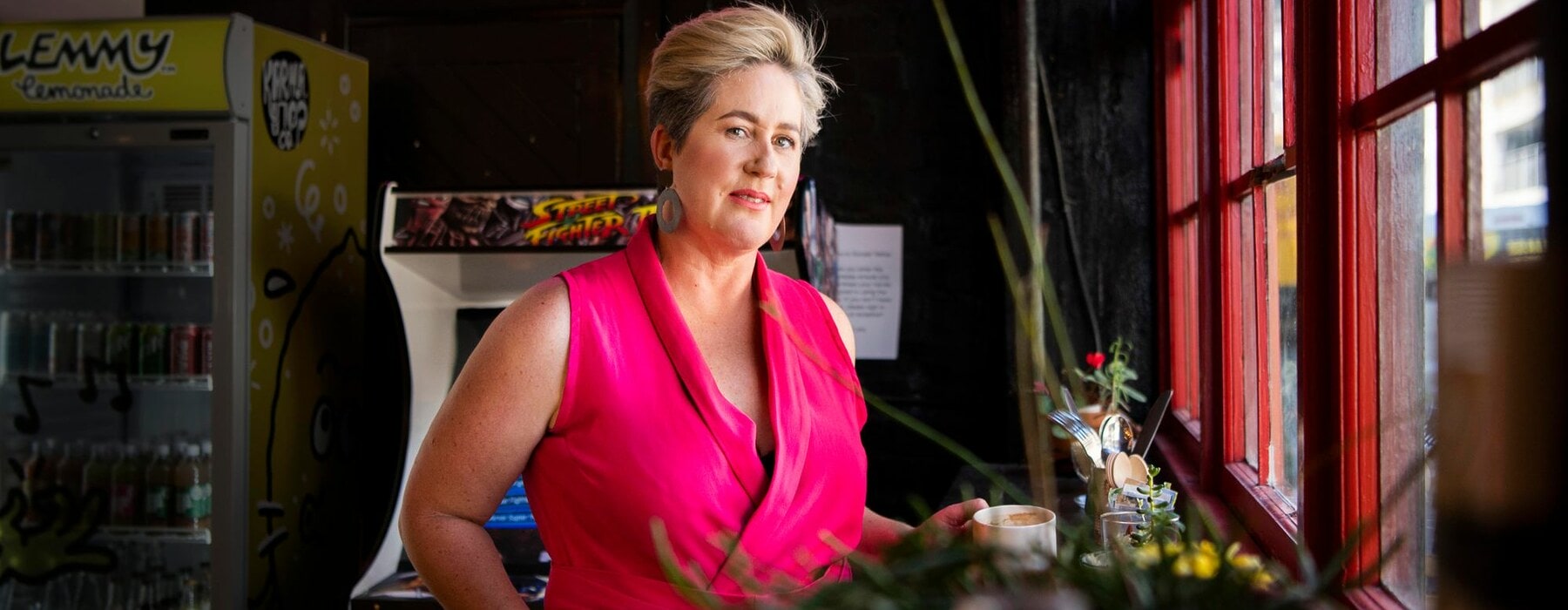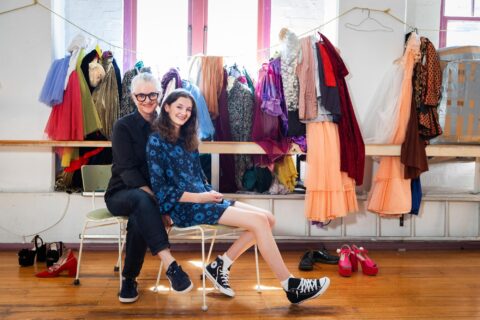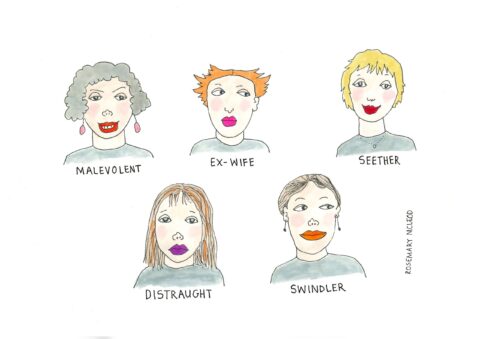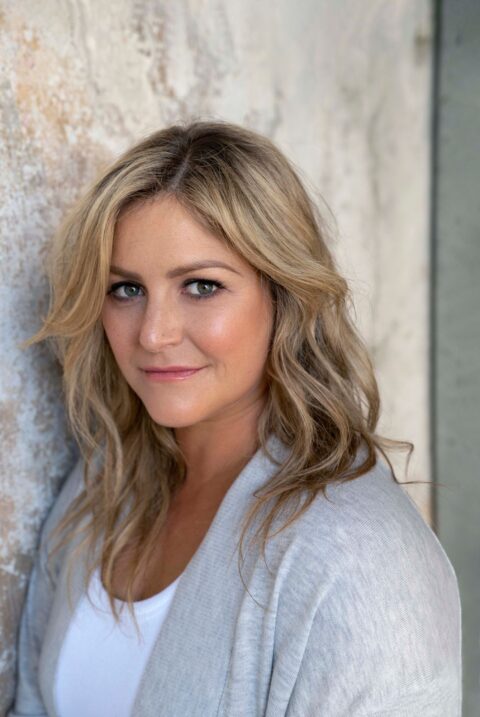Striving for success led to overwhelming stress and a health crisis for business coach Natalie Tolhopf. She tells Sharon Stephenson how she learnt to let go of her doubts and embrace imperfection.
Over the couple of years, as the rest of us ticked off squares on our lockdown bingo card (baking sourdough and hoarding toilet rolls, anyone?), Natalie Tolhopf was holed up in a tiny bedroom.
From her Whangaparāoa home, overlooking the sparkling blue waters of the Hauraki Gulf, Natalie shut herself off from her family to write, rewrite and occasionally wonder why she was putting herself through such hell.
“I got up at 5am every day for five months to write,” says the mother of Ruby, 12, and eight-year-old Molly. “It wasn’t the easiest thing I’ve ever done,” she adds with delicious understatement.
The result is Allergic to Perfect, Natalie’s 167-page ode to Kiwi businesswomen. As the name suggests, it’s about battling burnout, social media pressure and an addiction to perfection.
“I wanted to share what I’ve been through in terms of dropping my perfectionist tendencies and letting go of self-sabotage,” says the business coach. “And to help women overcome the dreaded imposter syndrome, because how many of us still think we shouldn’t be where we are?”
These are just a few of the issues Natalie wanted to get off her chest in her book and during our two-hour chat, where she barely pauses for breath.
“I’ve seen so many incredible women compare themselves to others, who scroll through social media looking at the highlight reels of other people’s lives and find themselves wanting,” she reflects.
That, says the 43-year-old in her usual take-no-prisoners way, is “complete BS”.
“We have to let go of the fear that we and our businesses will never be good enough. It’s a fear that allows us to procrastinate and get in the way of growing the business. But my message is you can drop the perfectionism, take imperfect action and get on with it.”
Getting on with it is Natalie’s second language.
On a warm day in February 2016, shortly after launching her business-coaching business, she woke up to find the right side of her face paralysed.
“It was one of those horror moments where I couldn’t feel my face. I got up, rushed to the mirror and the whole right side of my face had collapsed,” she remembers.
It was one of those horror moments… The whole right side of my face had collapsed
She initially thought it was a stroke, but doctors diagnosed it as Bell’s palsy, a condition where the muscles on one side of the face become weak or paralysed. “They told me it was the worst case they’d ever seen.”
It was the result of Natalie’s workaholic tendencies – the stress led to shingles and eventually Bell’s palsy.
“I was working incredibly hard and wore my busyness like a badge of honour,” she recalls, raking her hands through her short blonde hair. “I was trying to fill a void in myself that told me I wasn’t good enough, that if I just worked a bit harder, I might be.”
I was trying to fill a void in myself that told me I wasn’t good enough, that if I just worked a bit harder, I might be
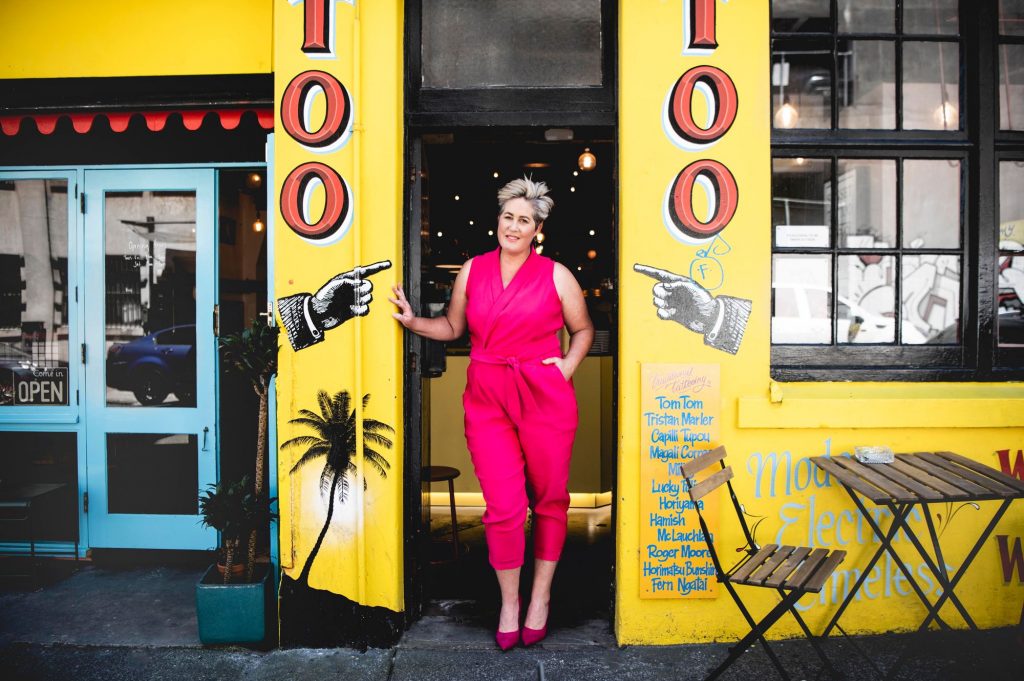
The irony, though, is that Natalie is the face of the business she started in 2015, which specialises in coaching female entrepreneurs.
“I had a mortgage to pay and a family to feed, so even though I had a wonky face, I still had to fulfil the speaking engagements, workshops and clients I’d committed to. It wasn’t easy and people stared at me, but my business message has always been imperfect action, because nothing in life is ever perfect. So delivering that message of imperfection with an imperfect face was weirdly appropriate!”
It was a good 18 months before Natalie’s droopy eye and crooked smile came right. It was almost as long before she could sip liquids without slurping. But she never missed a beat with her business and today Natalie coaches mainly women clients across the country, as well as in the US and Canada, on how to build a successful business.
Self-employment runs through Natalie’s veins: her mother, father and stepfather all ran their own businesses and her husband Michael Tolhopf is a self-employed plasterer.
Although she flirted with the idea of journalism, a love of food eventually prevailed and Natalie was one of the last apprentice chefs accepted at Auckland’s Hyatt Regency. She was also one of three women in a kitchen of 30. But Natalie took to the classical French training like a duck to orange sauce and when she finished her apprenticeship, she headed to Europe for a six-year OE that saw her winter in London and summer at cooking schools all over Italy.
Back home, Natalie opened her own restaurant in Orewa, but after two years, shuttered it. “I lost money on it because I didn’t understand finance or how to get the best margins. It was a great lesson on what not to do in business.”
Natalie’s introduction to sales came at a mortgage company on the Gold Coast, which taught her another valuable lesson she lives by today: “You have to sell with integrity. Ask yourself how your offering is going to help this person and be right for them because otherwise you shouldn’t be selling to them.”
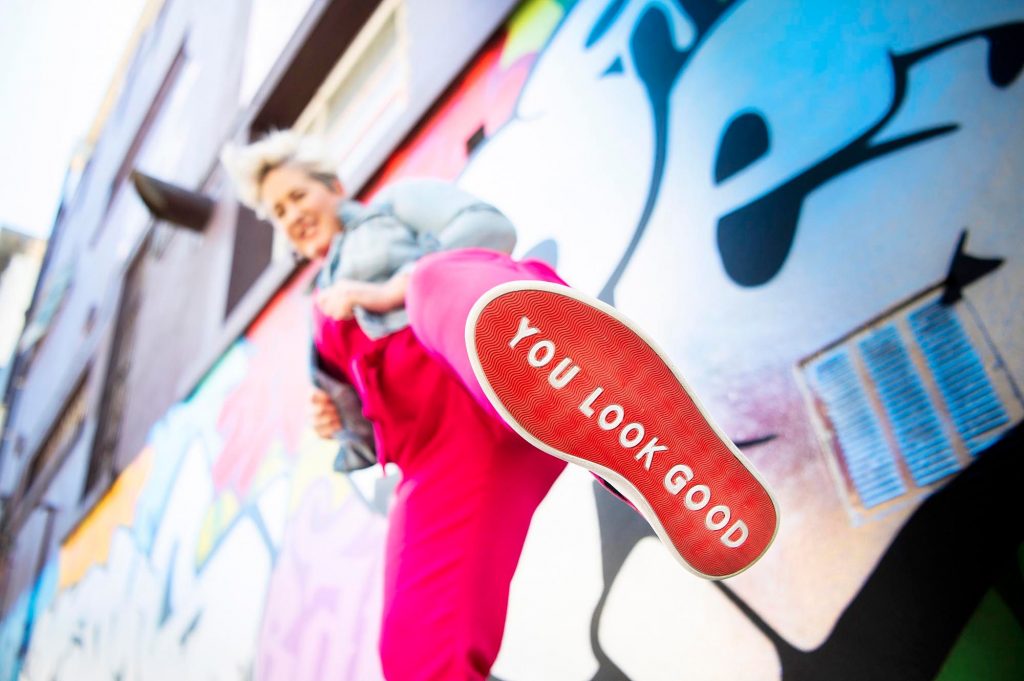
PHOTO BY NYKIE GROVE-EADES
She and Michael returned to New Zealand after a couple of years and Natalie went into hospitality management and training. But, post children, the entrepreneurial spirit tugged at her once more and she started an online venture, Catapult Your Business, to help women get back into the workforce.
It wasn’t what you’d call a success. “I made $45 in six weeks selling one course, which I promptly refunded because I thought it wasn’t good enough and who the hell did I think I was telling someone how to run their business? It was the good old imposter syndrome and I eventually worked with a business coach who helped me see that I was good enough, that businesses take time and that the key is to keep showing up instead of giving up.”
Natalie had always wanted to write a book and started gathering ideas in 2017. “It’s the sort of book I wish was around when I was first in business. I want this to be dog-eared and well-used because there are useful strategies to help women build their business in a way that’s right for them.”


